320 AD Constantine and the Foundations of the Byzantine Church
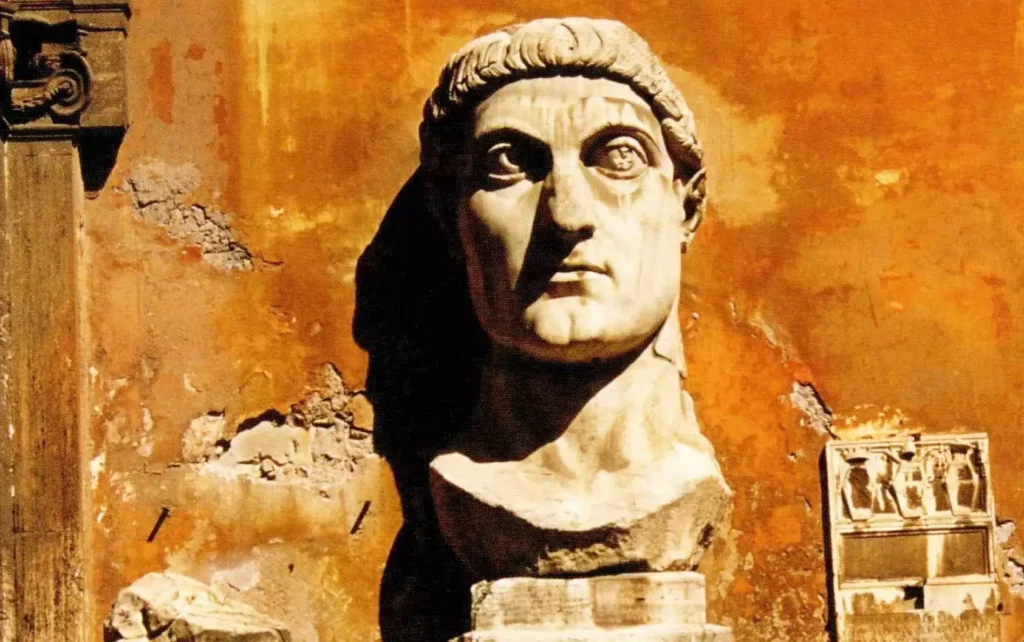
The conversion of Constantine after his victorious vision of the cross marked a pivotal moment for Christianity. His patronage brought the faith into the social mainstream and laid the foundations of the Byzantine Church. The ‘Publication’ of Christian Scripture The emergence of the codex, or modern book form, played a pivotal role in the spread […]
Discovering the Christian Assembly: A Journey Through History
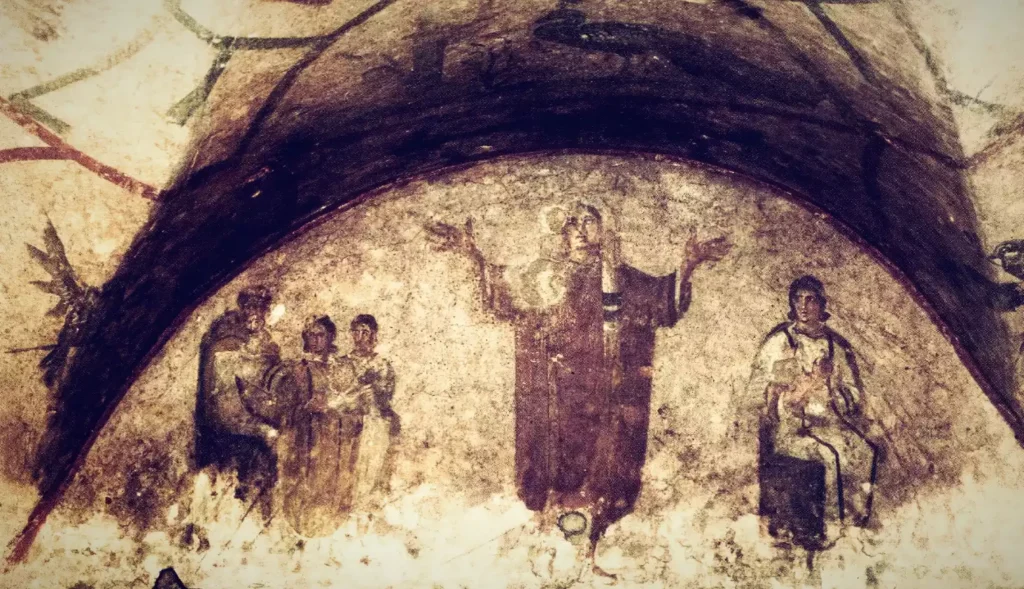
Uncover the veiled history of early Christian assembly in the catacombs, a testament to faith and fellowship amidst adversity. From clandestine meetings in Rome’s underground labyrinths to vibrant frescoes in Thessaloniki’s tombs, explore how early Christians congregated, celebrated, and commemorated within these sacred spaces. Delve into a world where faith flourished in secrecy, and artistry […]
Mamas, Saint: The Admirable Teenage Martyr
In the early church, saints of all ages gave their lives for Christ. Saint Mamas was one such teenager who demonstrated remarkable courage and faith. Born in the 3rd century AD in Paphlagonia, Mamas lost his parents at a young age. Despite trials, he remained devoted to living a Christ-centered life. Even threats and torture […]
314 AD Arles Synod: Unveiling Historical Truths
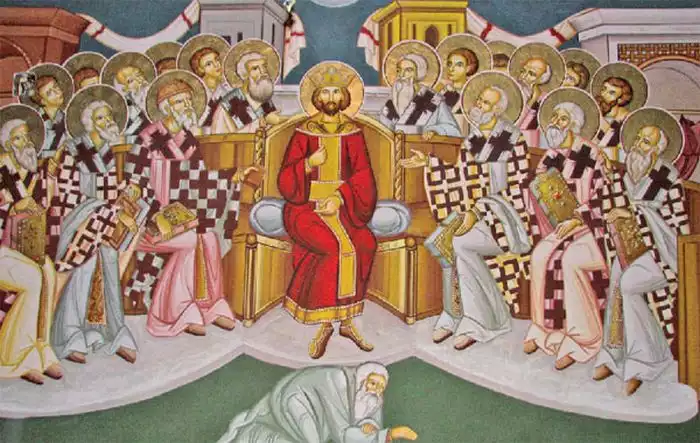
In the pivotal year of 314 AD, a significant ecclesiastical gathering, the Arles Synod, decisively branded Donatism as schismatic. This momentous event unfolded in the wake of the Diocletian Persecution, casting a profound shadow on the early Christian Church. Donatism, emerging from the fervent religious landscape of North Africa, challenged the fabric of ecclesiastical unity, […]
381 AD The Nestorian Controversy Unveiled
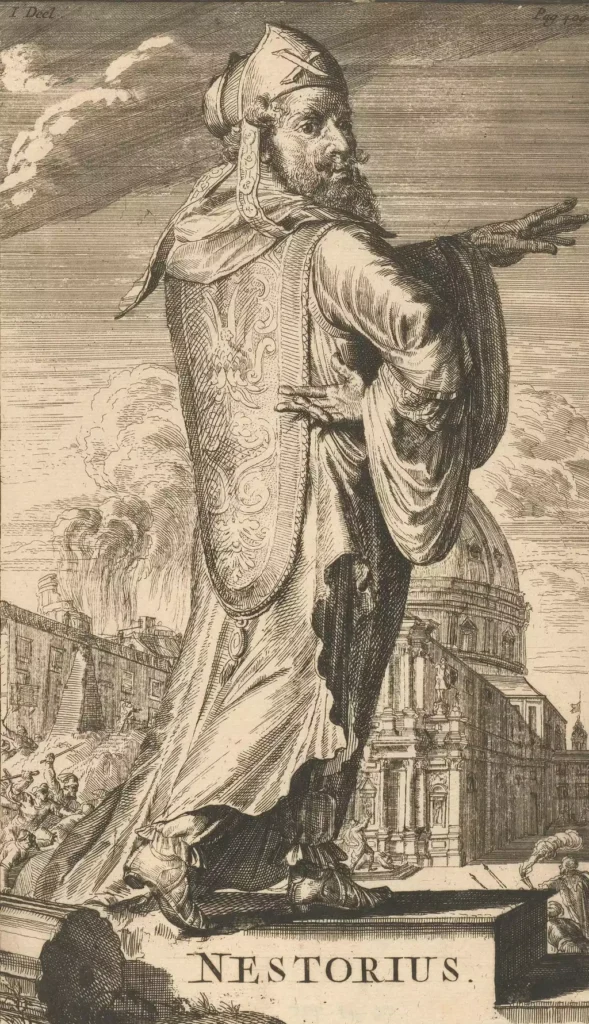
In 381 AD, the theological landscape of Constantinople was forever altered by the ascension of Nestorius to the patriarchate. Nestorius, a figure shrouded in doctrinal controversy, provocatively emphasized a stark disunion between the divine and human natures of Christ. This period marked not only a significant epoch in religious discourse but also a tumultuous chapter […]
300 AD The Legal Status of Christianity in the Roman Empire
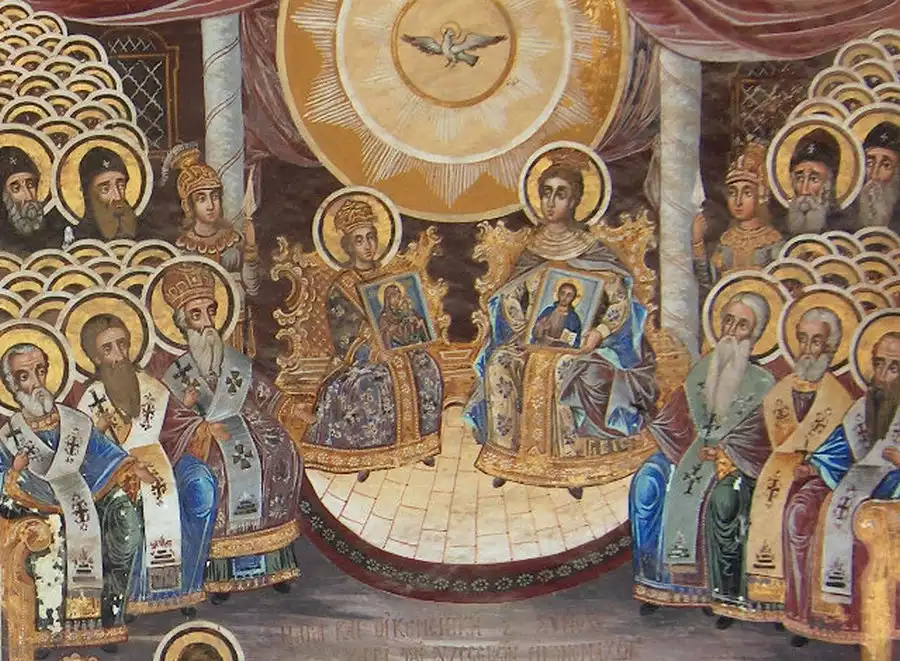
The legal status of Christianity in the Roman Empire during the first three centuries AD is complex. While there was no specific law targeting Christians, persecutions began in the apostolic era under Nero and continued intermittently until the early 4th century. Initially viewed as a Jewish sect, Christians were exempt from requirements to participate in […]
Michael the Archangel: Heaven’s Supreme Commander
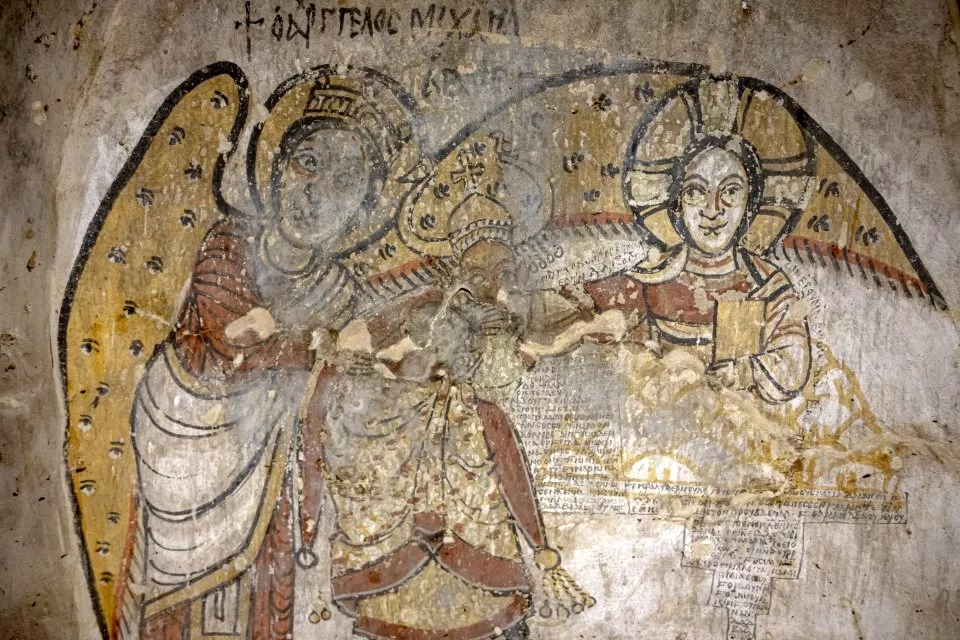
Humanity’s Protector: Saint Michael’s Aid to the Faithful Through History Saint Michael the Archangel, one of the principal angels and leader of heaven’s forces against darkness, has been revered since the earliest biblical times as humanity’s supreme advocate. Called upon countless times by the faithful in moments of strife, Saint Michael appears throughout both Old […]
Indiction: Bridging Past and Present in Faith and Time
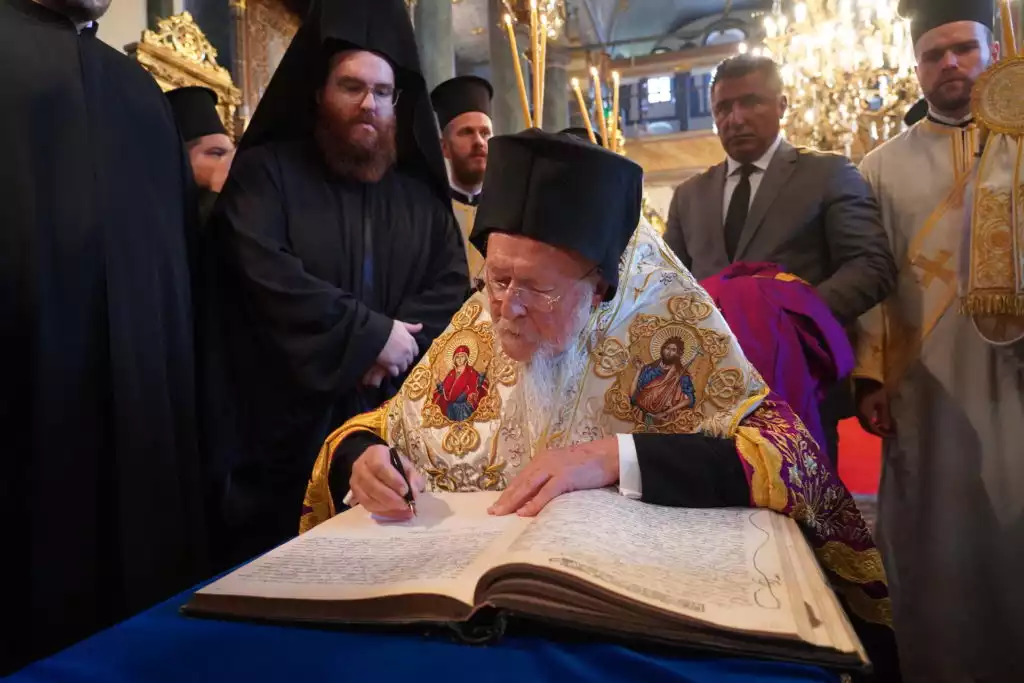
From the ancient Roman Empire to the Byzantine era, the concept of ‘Indiction‘ has played a pivotal role in shaping both temporal and spiritual realms. This 15-year astronomical cycle, initially a cornerstone of Roman tax policy, evolved into a significant marker of time within the Christian Church, symbolizing renewal and continuity. The journey of Indiction, […]
Basil III, Ecumenical Patriarch: The Unseen Educational Reformer
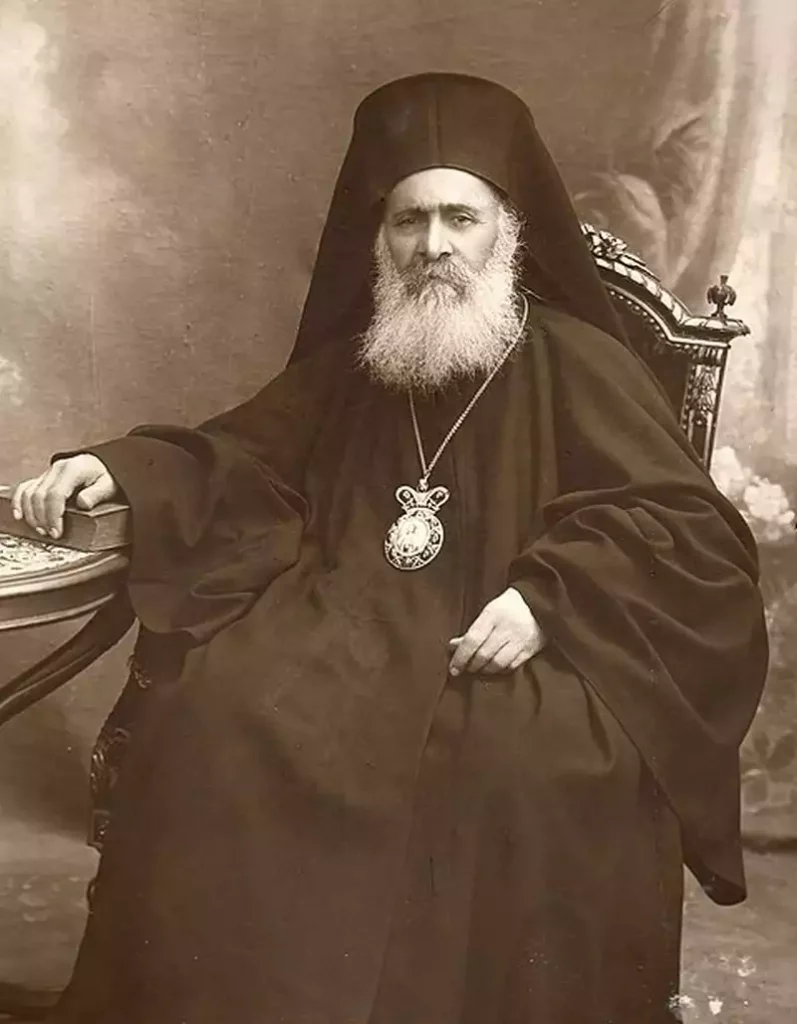
Born in 1846 in Chrysoupoli, near Chalcedon, the life journey of Basil Georgiadis, later known as Patriarch Basil III, was a remarkable tapestry of scholarly pursuit and ecclesiastical leadership. His quest for knowledge began with theology and philology studies at the University of Athens, culminating in his graduation in 1871. His scholarly zeal led him […]
Benjamin, Ecumenical Patriarch: A Beacon of Resilience in Turbulent Times
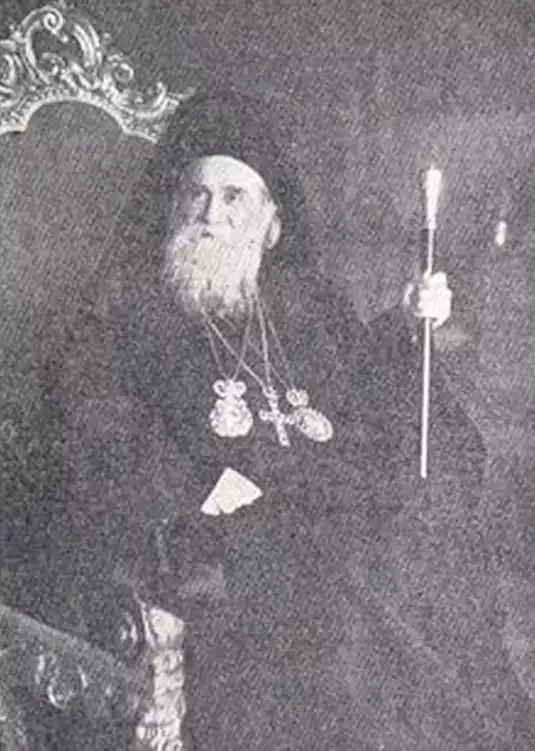
Traversing the Path from Humble Beginnings to Spiritual Eminence Born in 1871 in the village of Zeitinli, Adramyttio, the future Ecumenical Patriarch Benjamin (Veniamin Psomas or Kyriakou) embarked on his spiritual journey at a young age. His early education in his native land and Kydonia laid the foundation for his distinguished ecclesiastical career. Ordained a […]
110 AD Ignatius of Antioch coins term “Catholic” meaning Universal Church
In the pivotal year of 110 AD, a momentous term was articulated by Bishop Ignatius of Antioch that would indelibly shape the Christian lexicon: ‘catholic’. Derived from the Greek word ‘Καθολική’ (katholikē), it elegantly fuses ‘κατά’ (kata, ‘about’) and ‘ὅλος’ (holos, ‘whole’) to signify ‘universal’ or ‘concerning the whole’. This linguistic gem encapsulates the essence of inclusivity and totality, a concept that Ignatius fervently embraced and propagated. Born around 35 AD and embracing martyrdom in 108 AD, Ignatius stands as a monumental figure in early Christian history. His profound ideation of a church that transcends geographical and cultural confines, serving as a spiritual haven for all, marked a significant evolution in the Church’s understanding of itself. Through his teachings and writings, particularly during his journey to martyrdom, Ignatius of Antioch championed a vision of the Church as a universal entity, a community unbounded by earthly divisions, united in faith and purpose.
Dimitrios, Ecumenical Patriarch: A Legacy of Humility and Unity
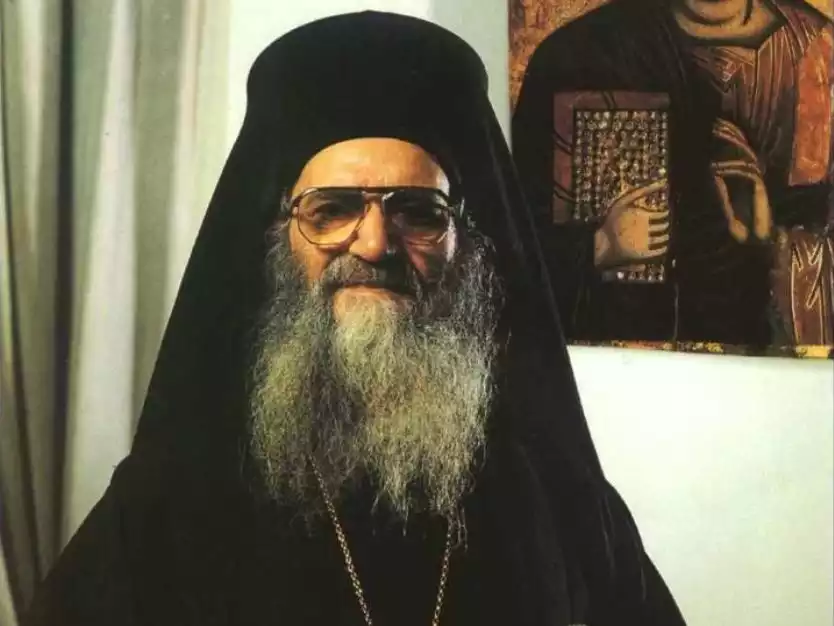
Ecumenical Patriarch Dimitrios Papadopoulos, born on September 8, 1914, in the Bosphorus suburb of Therapia, and passing into eternity on October 2, 1991, remains a beacon of humility and unity in the annals of Orthodox Christianity. His journey from the classrooms of Galata’s Gallo-Hellenic High School to the venerable Theological School of Chalkis laid the foundation for a life dedicated to spiritual service. Ordained as a deacon on Palm Sunday, 1937, Dimitrios’ path was characterized not by a quest for prominence, but by a steadfast dedication to his faith. His unexpected ascent to the Patriarchal Throne of Constantinople on July 18, 1972, marked the beginning of an era defined by his quiet strength and unyielding commitment to ecclesiastical unity. This narrative explores the life of a man who, amidst the complexities of his time, steadfastly pursued the unity of the Church and the promotion of theological dialogue with other denominations, leaving an enduring legacy that continues to resonate and inspire.
Athenagoras, Ecumenical Patriarch: Architect of Unity
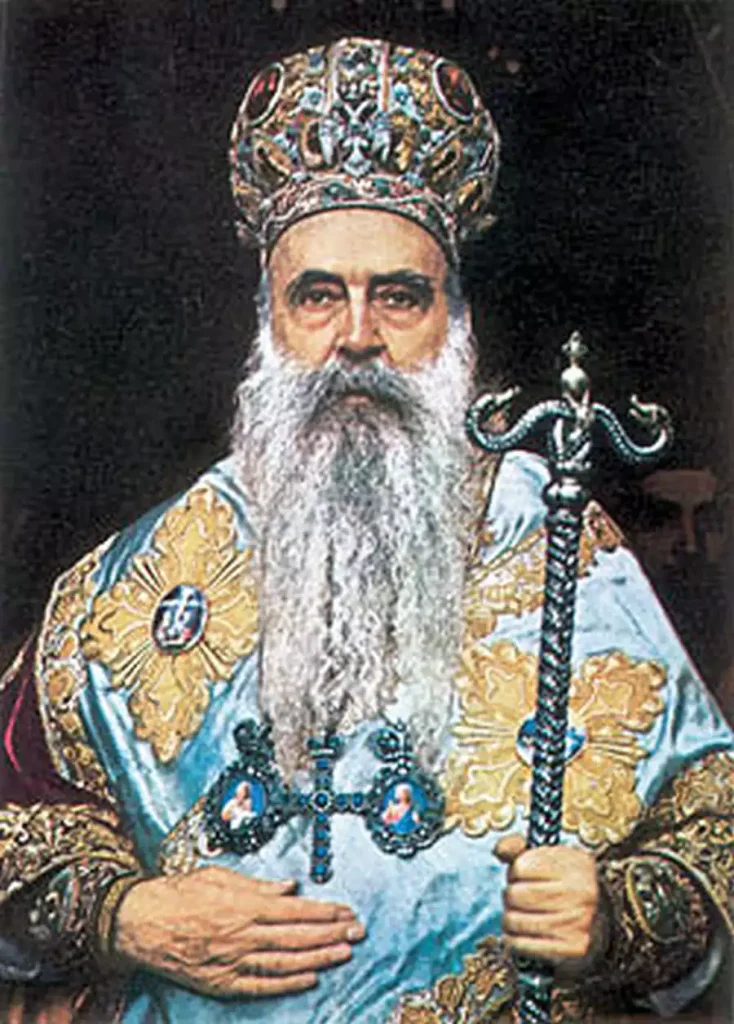
Born on March 25, 1886, in the village of Vasiliko, Epirus, and passing into eternity on July 7, 1972, Aristoklis Spyrou, better known as Athenagoras, embarked on a spiritual and transformative journey that reshaped the landscape of 20th-century Christianity. His path from a small Greek village to the exalted role of Ecumenical Patriarch was marked […]
Tertullian: Polemics and Piety Interwoven
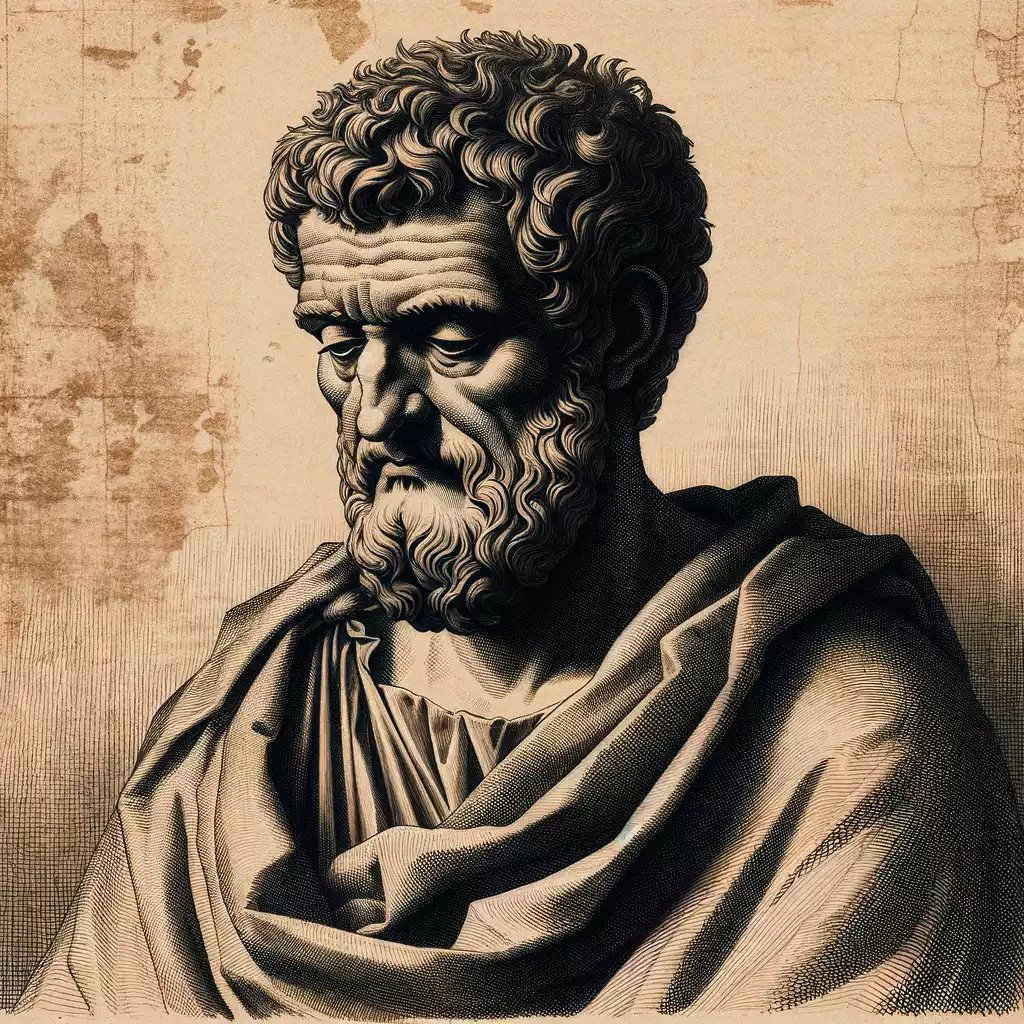
Tertullian, a titan in early Christianity’s chronicles, lived circa 155 to 240 AD. His odyssey, from rhetorical eminence to ardent Christian apology, has enthralled academics and believers. A native of intellectual hub Carthage, Tertullian’s initial exposure to Roman culture and ideals profoundly molded his worldview. His acceptance of Christianity constituted a pivotal turn, ushering prolific […]
1231 AD Gregory IX: Unveiling the Two Powerful Orders
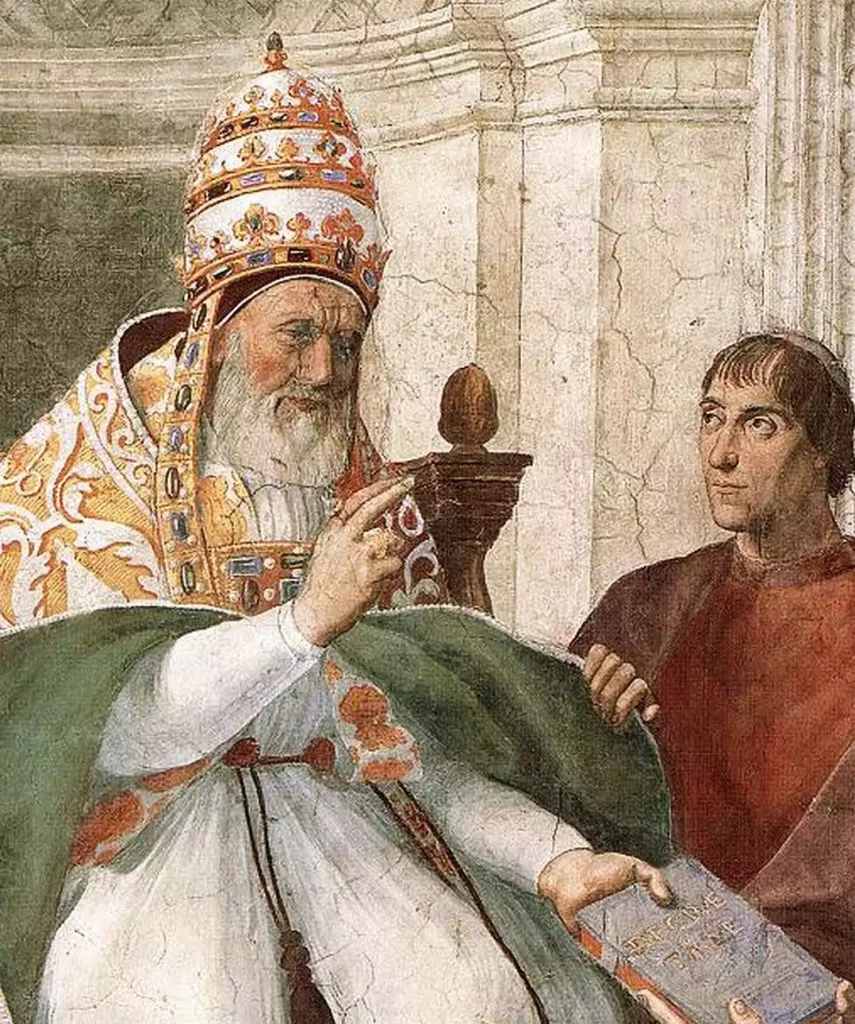
In 1231, a monumental shift occurred within the Christian world, profoundly shaping its spiritual landscape. Pope Gregory IX, a visionary leader, established two mendicant orders: the Franciscans and Dominicans. These orders, grounded in vows of poverty and preaching, emerged as powerful forces in medieval Christianity. The Franciscans, founded by Saint Francis of Assisi, emphasized living in simplicity and serving the poor. Conversely, the Dominicans, created by Saint Dominic, focused on combating heresy through education and theological discourse. Both orders played pivotal roles in religious and societal transformations during the Middle Ages. Their impact resonated through centuries, influencing Christian theology, social service, and the broader cultural milieu of Europe.
Priscilla and Aquila, Saints | Early Christian Missionaries
Saints Priscilla and Aquila, a married couple from the early Christian era, stand as exemplary figures in the nascent Christian church. Their journey, beginning in the first century A.D., embodies the spirit of partnership and devotion, both to each other and to the burgeoning Christian faith. The Early Years and Meeting with Paul Saints Priscilla […]
Pietism | Transformative Movement in Protestant Christianity
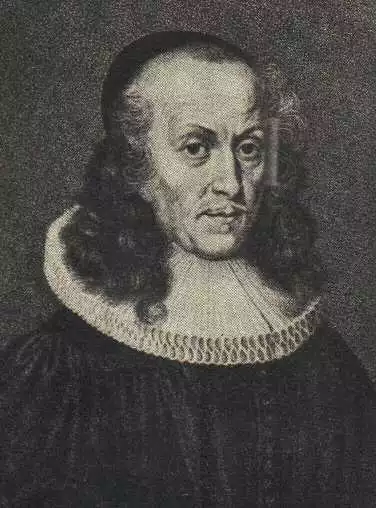
Pietism, a significant movement within Lutheranism, emerged in the late 17th century, intertwining the rigor of biblical doctrine with a fervent emphasis on personal piety and the living of a devout Christian life. Its roots trace back to Philipp Spener, a German Lutheran theologian, whose teachings on spiritual rebirth and renewal marked the genesis of […]
303 AD Emperor Diocletian begins Great Persecution, destroys churches, burns Scriptures
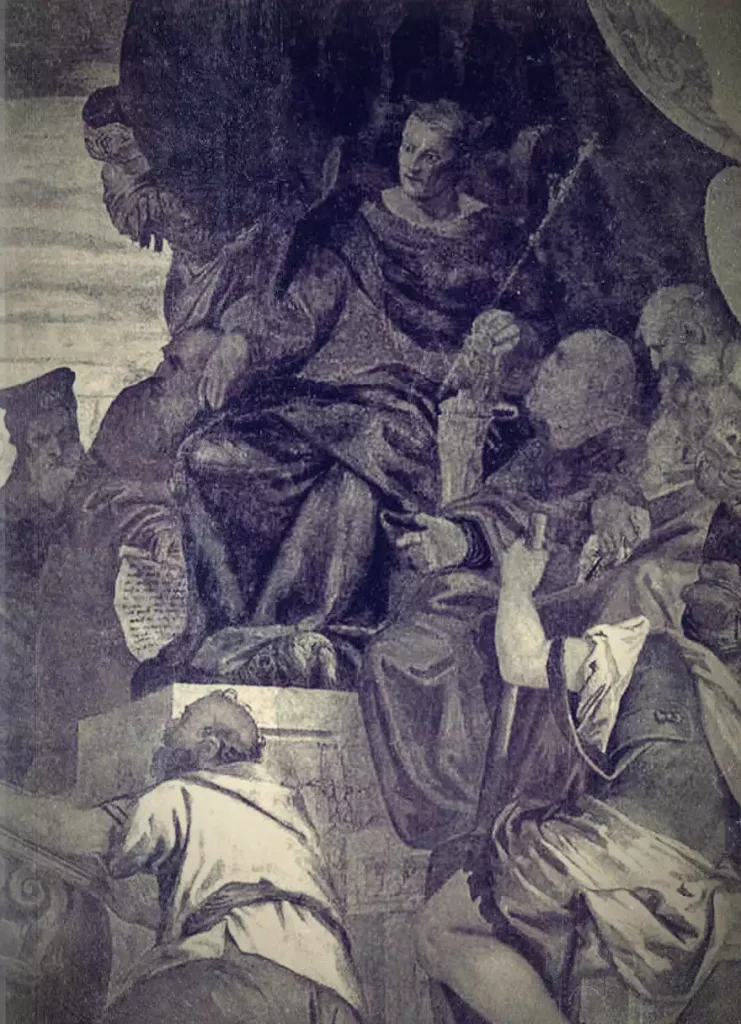
In the annals of history, 303 AD marks a significant epoch, characterised by Emperor Diocletian’s directive leading to the Great Persecution. This period witnessed an unparalleled crackdown on Christian communities, resulting in the demolition of churches and the incineration of sacred Scriptures. The Dawn of Persecution The year 303 AD heralded a tumultuous phase for […]
Kokkinos, Saint Philotheos | Ecumenical Patriarch
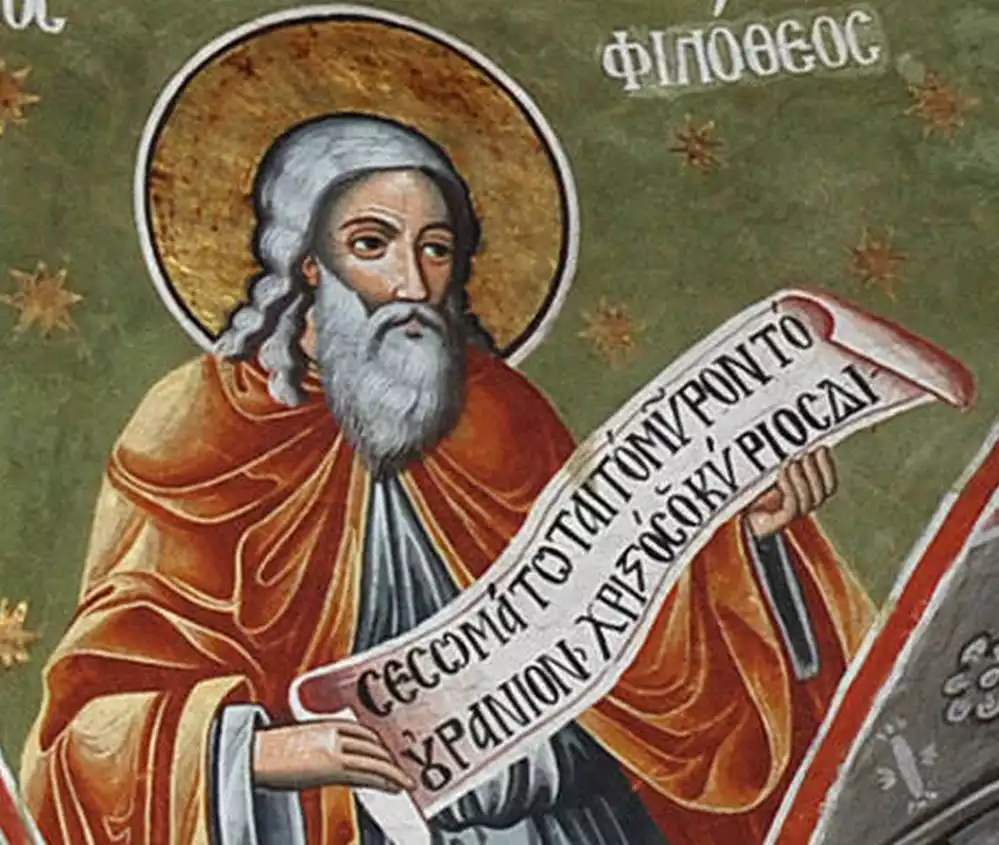
Saint Philotheos, born around 1300 in Thessaloniki and passing away in 1379, stands out as a pivotal figure in Orthodox Christian history. Renowned for his scholarly and clerical accomplishments, he was deeply involved in the Hesychastic controversies, a movement centered around the practice of inner stillness and prayer. Early Life and Ascetic Endeavors Saint Philotheos’ […]
451 AD 4th Ecumenical Council of Chalcedon
In the annals of Christian history, few events hold the same weight and consequence as the 4th Ecumenical Council of Chalcedon, convened in 451 AD. Held amidst theological turmoil surrounding the nature of Jesus Christ, the council’s pronouncements would reverberate throughout the centuries, shaping Christian belief and practice for generations to come. Christological Contention The […]
Silas, Saint | Early Christian Leader and Companion of Paul
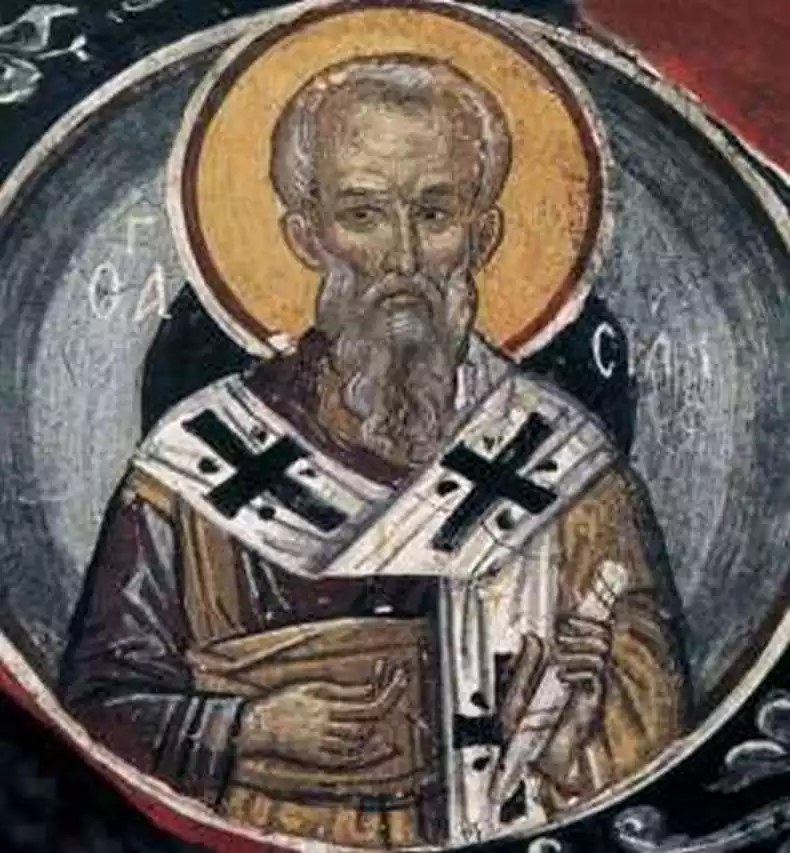
Saint Silas, a prominent figure in the early Christian community, is best known for his association with Paul the Apostle. Although the exact dates of his birth and death are not definitively recorded in historical texts, Silas’s contributions to early Christianity are well-documented through the New Testament, particularly in the Acts of the Apostles and […]
Clement IX, Pope
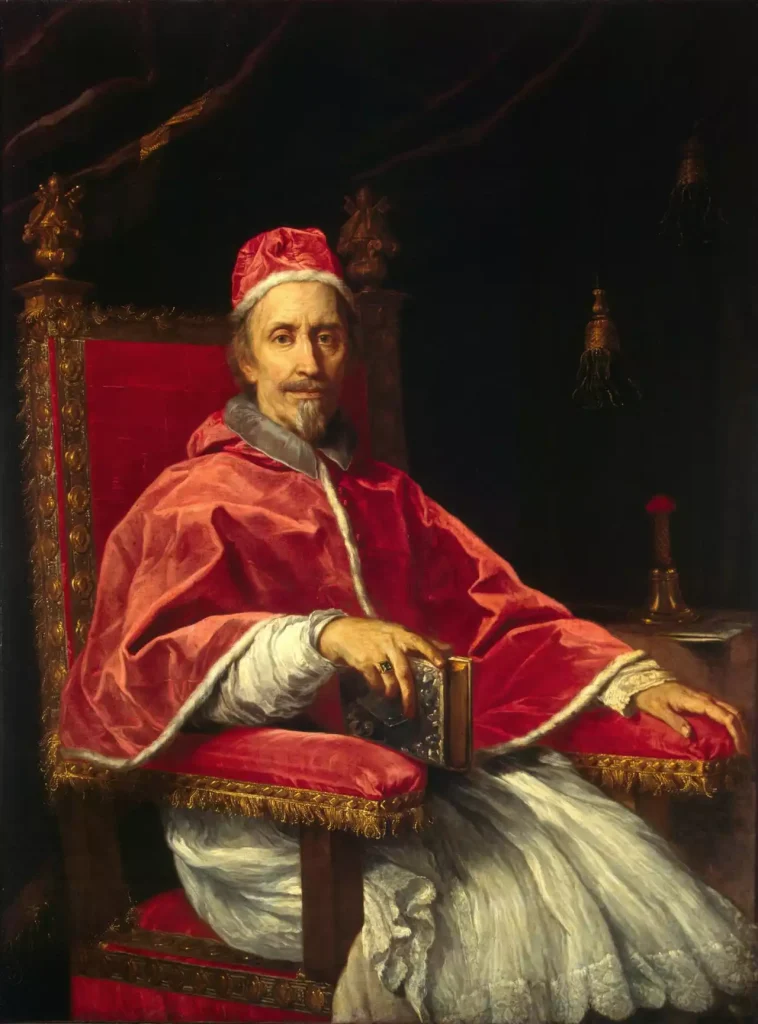
Giulio Rospigliosi was born on January 28, 1600 in Pistoia, Tuscany. He became Pope Clement IX, leading the Catholic Church from 1667 until his death in 1669. As pope, Clement IX worked to maintain peace during a period of European conflicts. However, he faced challenges within the church, including nepotism and the need for church […]
Orthodox Church Czech Lands Slovakia, Eastern Orthodox
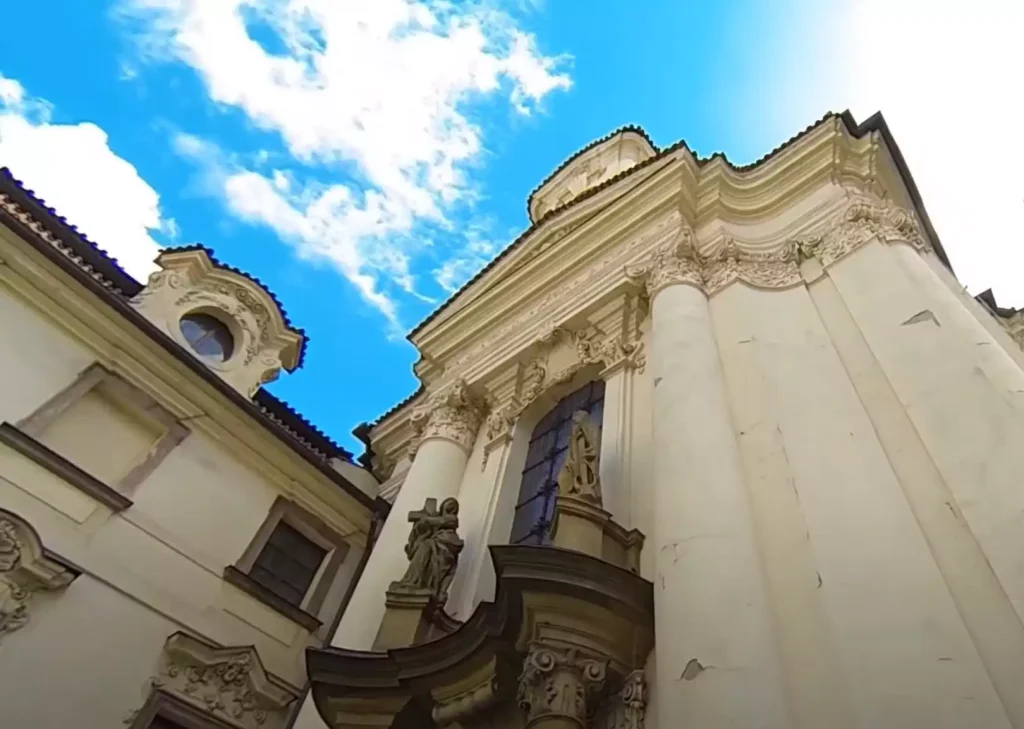
The Eastern Orthodox Church of the Czech Lands and Slovakia stands as a beacon of spiritual continuity and evolution in Central Europe. Emerging through a tapestry of historical turmoil and cultural interweavings, this ecclesiastical body has not only weathered the storms of time but has also flourished, offering a unique spiritual perspective to its adherents. […]
Patriarchate of Romania, Eastern Orthodox
The Eastern Orthodox Patriarchate of Romania, also known as the Romanian Orthodox Church, stands as a beacon of faith and tradition within the Eastern Orthodox Christian world. Established as an autocephalous entity in 1885, it plays a pivotal role in the spiritual life of Romania’s majority Orthodox Christian population. Historical Foundations and Development Tracing its […]
431 AD Third Ecumenical Council of Ephesus
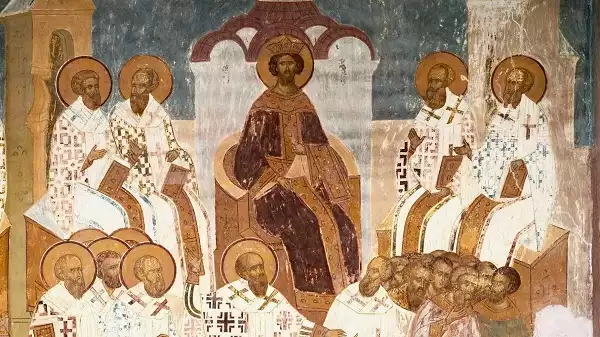
Condemnation of Nestorianism and Affirmation of Mary as Theotokos In 431 AD, a pivotal event in Christian history occurred: the Third Ecumenical Council of Ephesus. This Council, a significant gathering of Christian bishops, was convened to address the growing controversy surrounding Nestorianism, a doctrine named after Nestorius, then Patriarch of Constantinople. Central to the Council’s […]
